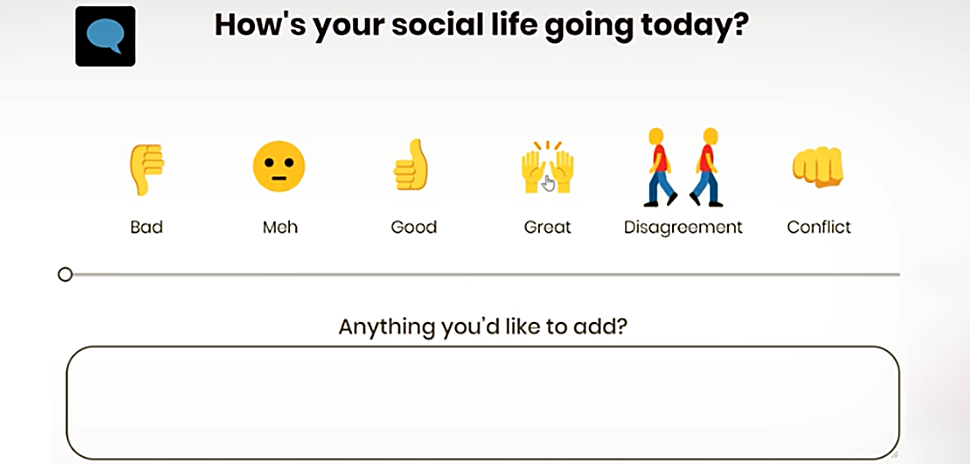![]() Dallas-based ThinkWhy launched its flagship solution, LaborIQ, this week to help companies better understand today’s labor supply and demand.
Dallas-based ThinkWhy launched its flagship solution, LaborIQ, this week to help companies better understand today’s labor supply and demand.
The ‘intuitive platform’ is intended to give businesses a strategic market advantage by providing a better understanding of benchmark roles, compensation, and talent requirement. It provides a detailed analysis and multi-dimensional reporting to give readily available strategic insights into the U.S. labor market.
ThinkWhy calls it the “only platform on the market to connect a labor market analysis with workforce and compensation planning.”
We spoke with Claudine Zachara, the co-founder, president, and COO of ThinkWhy on what she sees as massive opportunity in this sector, what’s next after launching ThinkWhy, and how she became involved.
What would success be for ThinkWhy in the next 2-3 years?
Success will be realized when businesses are leveraging and strategically benefiting from LaborIQ data, forecast and analysis. Our ultimate goal is to provide business leaders, HR professionals and hiring managers actionable answers they need to be strategic advisors in their organization. It’s really about supporting better career lives.
What is the market opportunity in your sector?
The past decade has seen fundamental changes in the workplace, creating a new business and labor market landscape. This new reality places more importance on talent attraction, retention and compensation, with business leaders facing the headwinds of a skilled-labor shortage. What hasn’t changed are the labor market tools businesses are using to optimize decision-making.
What’s next for you and your company this year?
There are four significant product additions planned for near-term release. For the immediate future, the company will be focused on growing LaborIQ’s customer base, innovating and adapting the platform to meet the needs of our clients, and ensuring our mission is a success.
What do you wish people knew about ThinkWhy?
Our mission is to arm business leaders with the data and insights needed to support strategic business decisions around workforce and compensation planning decisions. LaborIQ achieves this by centralizing labor market data to provide companies with specific labor market performance and salary demands by occupation and metro, and how it impacts their organizational planning. This supports business leaders and hiring professionals in making strategic workforce, compensation and business decisions. The historically low unemployment rate has forced the U.S. economy into a skilled-labor shortage, making it more critical than ever for companies to consider a variety of economic variables to stay competitive and plan for employment costs in 2020 and beyond. Yet the tools at the disposal of hiring managers haven’t changed in decades. With LaborIQ, the future has arrived.
What inspired you personally to do what you do?
Directly after receiving my bachelor’s degree, I earned a role as an account executive with a prestigious cosmetic company, it provided business exposures and responsibilities that few my age would have the fortune to receive. I was given this opportunity by a person who took the chance on my potential. Shortly into my tenure in supervisory roles, I decided my purpose and “why” was to find and nurture talented individuals—“find the diamond and let them shine”, if you will. My “why” is to impact peoples’ career lives in a profoundly positive way, and in turn, inspire them to do the same. The goal is to craft great leadership at every level of the organization. It’s not only good succession planning; it’s my life’s legacy.
Ron Johnsey, ThinkWhy’s Founder and CEO, approached me in the summer of 2018 to help refine a business concept he was working on. I’d taken on challenges before, but this would be on a whole new scale. It would require building a SaaS company from scratch, branding it, recruiting leadership, developing operational procedures, guiding all growth strategy, and the list goes on. After careful reflection, I realized that building and leading the organization would allow me to realize my “why” on a broader scale; allowing me to inspire others, teach leadership and smart business practices, and leave a legacy that would (hopefully) be magnified through the skills and efforts of others.
What problems does your company solve for consumers or businesses?
LaborIQ is built and designed to make labor market data accessible and affordable for all businesses. The platform offers deep analysis for companies of all sizes, equipping business leaders, HR and hiring managers with data and insights to support strategic hiring and business decisions. LaborIQ provides answers to labor market performance health, as well as salary requirements by occupation, such as UX designer, AI specialist, DevOps Director, and 17,000 more. LaborIQ, through a unique ‘job blending’ analysis between skills, experience and location, delivers insights into supply, demand and compensation for these critical roles.
What are you most proud of in terms of ThinkWhy?
As I mentioned, it’s more critical than ever for companies to consider a variety of economic variables to stay competitive and plan for employment costs in 2020 and beyond. I’m most proud that we’re making the tools necessary from small to mid-sized businesses to plan for success available for the first time, unlocking meaning from mass amounts of U.S. labor market data, offering insight into labor supply and demand for those who need it most.
I am also so proud of the talent and culture we have built at ThinkWhy. As a young startup, it can be tempting to “move fast and break things,” and while one of our core values is adaptability we don’t sacrifice employee satisfaction and professional development as we scale. We have developed a culture blueprinting program called “Igniting Futures”, which is focused on building and fostering our unique culture at ThinkWhy and supporting our employees as they grow as professional individuals in a high-performance culture. It will remain a core focus for me, as I steer the organization’s growth.
What advice do you have for someone who is trying to break through in startups right now?
1. Keep your office door open or remove doors altogether. Leaders who are easily approachable, for a variety of reasons, break down barriers for their employees. The intimidation factor is a non-issue when employees interact with leadership daily.
2. There are no crystal balls. No matter how elegant a plan is constructed with data and strategic vision, be prepared to pivot and be adaptable.
3. Vendors must be heavily vetted. You are paying them a great deal of money, especially when developing a company. No matter what your sense of urgency is, do your homework and research. Make sure they align with your values and work style and have the necessary infrastructure and skill to do what they say they can do.
4. Take care of yourself and pay attention to your health and need for time away from the grind. Your team suffers if you do not unplug and recharge. Your physical and mental health is vital to the wellbeing of the organization. It also helps if you plan to live a very long life.
5. People will inspire and disappoint. They will be your greatest wins and successes as they positively impact and grow under your leadership. And, occasionally, they will be your greatest heartache when they cannot get there. Remember that great people are out there. Find the diamonds and allow them to shine.
6. Let the small stuff go. Ask yourself daily—“Will I care about this one year from now?” If you won’t, drop it immediately. It’s not worth the time and energy drain.
Getting Personal: Claudine at-a-glance
First job? I worked in retail in high school and college. First professional role after graduating from college was an Account Executive at Ralph Lauren Fragrances, managing multiple states.
Time you start your day? 5 am.
Exercise routine? I’m addicted to Pilates, and attend class at least four (4) times per week.
Work uniform or go-to staple? Great heels.
Favorite item in your office or on your desk? A photo of my founding Launch Team at ThinkWhy.
Productivity tool or app you can’t live without? Economic news from digital and cable news sources.
Secret skill or superpower? Spidey senses (or intuition).You’ve got to hone it when you manage and recruit top-performing teams.
Favorite pastime or hobby? Swimming, surfing—anything water related.
Guilty pleasure? Anything dark chocolate.
Current book/binge tv/podcast? Startup podcast “How we Built This.”
Favorite quote? “I will not follow where the path may lead, but I will go where there is no path, and I will leave a trail.” — Muriel Strode
What’s your “walk on” song? BeeGees “More than a Woman”
Quincy Preston contributed to this report.






























